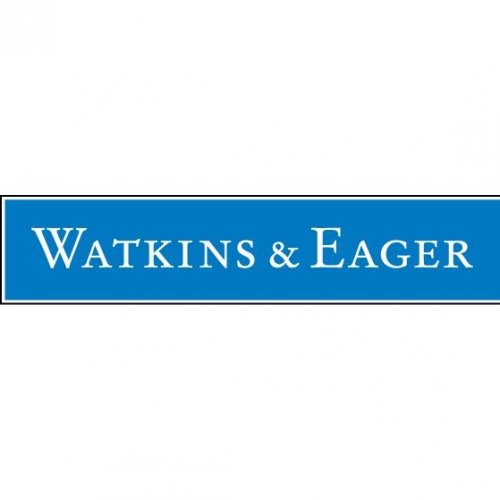Best Foreclosure Lawyers in Mississippi
Share your needs with us, get contacted by law firms.
Free. Takes 2 min.
Free Guide to Hiring a Real Estate Lawyer
Or refine your search by selecting a city:
List of the best lawyers in Mississippi, United States
About Foreclosure Law in Mississippi, United States
Foreclosure is a legal process by which a lender attempts to recover the balance of a loan from a borrower who has stopped making payments. In Mississippi, foreclosure most commonly occurs when homeowners fall behind on their mortgage payments. The lender can then sell the property, usually through a public auction, to recoup the outstanding loan amount. Mississippi primarily uses a non-judicial foreclosure process, meaning foreclosures often happen outside of court. Understanding how foreclosure works in the state is important if you are facing the possibility of losing your home.
Why You May Need a Lawyer
There are many situations where having legal assistance can be crucial during foreclosure. Some common reasons to seek a lawyer include:
- Receiving a notice of default or foreclosure and being unsure of your rights or available options.
- Suspecting errors or wrongdoing by your lender, such as incorrect application of payments or faulty foreclosure procedures.
- Wanting to explore alternatives to foreclosure, such as loan modification, short sale, or bankruptcy.
- Dealing with dual tracking, where the lender continues foreclosure proceedings while considering a foreclosure alternative.
- Facing eviction after foreclosure and needing advice or representation.
- Needing to understand the consequences of foreclosure on your credit and future homeownership possibilities.
Local Laws Overview
Foreclosure laws in Mississippi are state-specific, and some aspects to keep in mind include:
- Non-judicial foreclosure is the primary method: Most lenders use a non-judicial process, which is often quicker than court-based (judicial) foreclosures.
- Power of Sale clause: Mortgages and deeds of trust often include a "power of sale" clause, allowing the lender to sell the home themselves after meeting certain requirements.
- Notice requirements: Mississippi law requires that borrowers receive at least 30 days written notice before the foreclosure sale.
- Right of redemption: In Mississippi, there is no statutory right of redemption after a non-judicial foreclosure. This means once the property is sold, you generally cannot reclaim it by paying the balance owed.
- Deficiency judgments: Lenders may pursue a deficiency judgment if the home sells for less than what is owed, but only in limited circumstances.
- Eviction after foreclosure: The new owner must follow formal eviction procedures to remove former homeowners who stay in the home after the sale.
Frequently Asked Questions
What is non-judicial foreclosure?
Non-judicial foreclosure is a process that does not require court action. The lender must follow specific steps outlined in the mortgage or deed of trust, provide proper notice, and then sell the property at a public auction.
How much notice will I receive before my home is sold?
Mississippi law requires that you receive written notice of the foreclosure sale at least 30 days before the sale date. This is to give you time to respond or seek help.
Can I stop a foreclosure once it has started?
Yes, you may be able to stop foreclosure by bringing your loan current, negotiating with your lender for a modification or repayment plan, or in some cases, by filing for bankruptcy. Seeking legal advice early is important.
Will I owe money if my home sells for less than the mortgage balance?
It is possible in Mississippi for lenders to seek a deficiency judgment for the difference between the sale price and the remaining mortgage balance, but this is not automatic and depends on the specifics of your loan and the foreclosure process used.
What happens to my credit score after foreclosure?
Foreclosure will have a significant negative impact on your credit score and can affect your ability to get loans or favorable interest rates for several years.
Can I stay in my home after foreclosure?
Once the foreclosure sale is completed, the new owner must go through the formal eviction process to remove you from the property. You have the right to remain until you receive proper notice and court proceedings are completed.
Should I attend the foreclosure sale?
You are not required to attend, and your presence will generally not affect the outcome. However, you can attend if you wish to observe or bid on your own property.
Are there alternatives to foreclosure?
Yes. Alternatives include loan modification, repayment plans, deed in lieu of foreclosure, forbearance, and short sales. Many of these options can help you avoid the negative impacts of foreclosure.
What is "dual tracking" and is it legal?
Dual tracking occurs when a lender proceeds with foreclosure while simultaneously evaluating a borrower for loss mitigation options. Mississippi does not have specific laws restricting dual tracking, so it's important to communicate with your lender and seek legal help if needed.
Do I need a lawyer if I am facing foreclosure?
While not required, having a lawyer can help you understand your rights, negotiate with your lender, ensure the correct legal procedures are followed, and explore alternatives to foreclosure.
Additional Resources
If you need more information or assistance, these organizations and agencies can be valuable resources:
- Mississippi Bar Association's Lawyer Referral Service
- Mississippi Center for Legal Services
- Mississippi Home Corporation (offers housing counseling)
- U.S. Department of Housing and Urban Development (HUD) approved housing counselors
- Consumer Financial Protection Bureau (CFPB) resources on foreclosure prevention
Next Steps
If you are concerned about foreclosure or have received any notices from your lender, it is important to act quickly. Here are steps to consider:
- Gather all correspondence, loan documents, and notices you have received.
- Contact your lender as soon as possible to discuss your situation and any potential loss mitigation options.
- Reach out to a government-approved housing counselor for help understanding your options and negotiating with your lender.
- Consider consulting with a foreclosure or consumer law attorney to ensure your rights are protected and to explore all available alternatives to foreclosure.
- Stay informed about important deadlines and legal requirements in the foreclosure process.
Taking early action and seeking professional assistance can greatly increase your chances of keeping your home or achieving the best possible outcome for your situation.
Lawzana helps you find the best lawyers and law firms in Mississippi through a curated and pre-screened list of qualified legal professionals. Our platform offers rankings and detailed profiles of attorneys and law firms, allowing you to compare based on practice areas, including Foreclosure, experience, and client feedback.
Each profile includes a description of the firm's areas of practice, client reviews, team members and partners, year of establishment, spoken languages, office locations, contact information, social media presence, and any published articles or resources. Most firms on our platform speak English and are experienced in both local and international legal matters.
Get a quote from top-rated law firms in Mississippi, United States — quickly, securely, and without unnecessary hassle.
Disclaimer:
The information provided on this page is for general informational purposes only and does not constitute legal advice. While we strive to ensure the accuracy and relevance of the content, legal information may change over time, and interpretations of the law can vary. You should always consult with a qualified legal professional for advice specific to your situation.
We disclaim all liability for actions taken or not taken based on the content of this page. If you believe any information is incorrect or outdated, please contact us, and we will review and update it where appropriate.
Browse foreclosure law firms by city in Mississippi
Refine your search by selecting a city.











